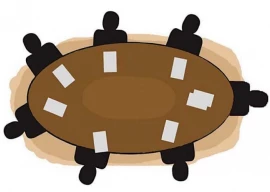
The water company and health officials monitoring water in Karachi, home to 18 million people, have been ordered to trace the source of the Naegleria fowleri outbreak.
Sindh Health Minister Dr Saghir Ahmed said the drinking supply, swimming places and facilities used for ritual ablutions were all under investigation.
"There is no reason to panic and citizens should stay calm and take precautions," Ahmed said.
"It is a water-borne infection and we are thoroughly inquiring about its arrival and spread here."
Shakeel Malick, a health ministry official, said the amoeba had caused 10 deaths so far this year. He said there have been cases in the past, but so few that detailed numbers were not recorded.
The amoeba causes primary amoebic meningitis, a disease with a fatality rate of over 99 percent, said Faisal Mehmood, an expert in infectious diseases.
Naegleria fowleri is found in warm fresh water and usually infects people when contaminated water enters the body through the nose. The amoeba passes through the nasal membranes and destroys brain tissues.
The ablutions Muslims must perform before praying involve rinsing inside the nose and Ahmed said people should use boiled water for the purpose while the outbreak was going on.
The World Health Organisation (WHO) said nine cases had been confirmed and one more was suspected. It is working with Pakistani officials to investigate the cases and work out steps to prevent further infections.
"We are visiting houses of the victims and profiling their history," Musa Khan, WHO's head of disease early warning system in Pakistan, told AFP.
Misbahuddin Farid, who heads the Karachi Water and Sewerage Board, said chlorine concentration was being increased in reservoirs and supply stations as a precaution.
A health ministry statement referring to recent lab tests said 22 per cent of 913 samples drawn from water supply sources in the last three months were found to be non-chlorinated.

















COMMENTS
Comments are moderated and generally will be posted if they are on-topic and not abusive.
For more information, please see our Comments FAQ